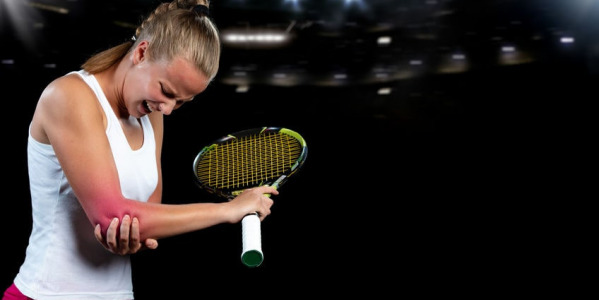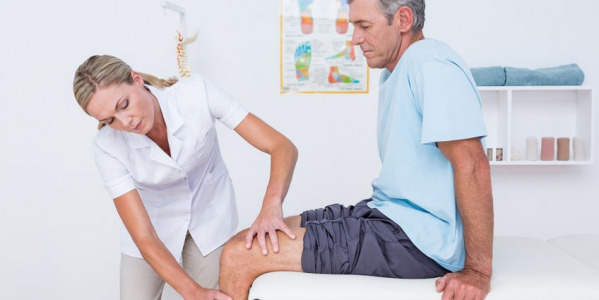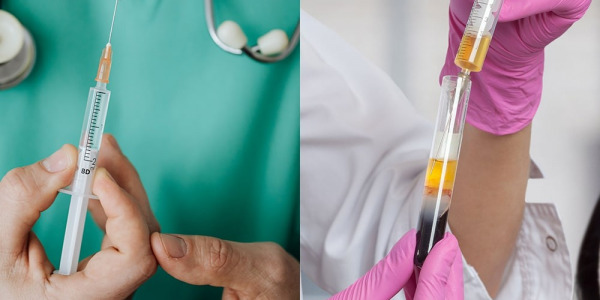The information we provide is for your information only and does not replace a personal consultation, examination or diagnosis by a registered doctor.
In principle, no remote diagnosis or therapy suggestion can be made in individual cases. The information and content provided is intended to offer general, non-binding support to those seeking advice. The information provided by the respective experts is no substitute for a visit to the doctor, but can usefully supplement and support the dialogue between patient and doctor.
We do not offer advice, recommendations or enquiries about the purchase and/or use of medicines, other health products, diagnostic or therapeutic procedures.
We also warn against self-medication. The content provided by us cannot and should not be used to make an independent diagnosis and/or independent selection and application, or to change or discontinue any medication, other health product or healing process. Please consult your doctor or pharmacist for this!
The content available on our website is carefully compiled and meets high quality standards. Medical texts are written by experts. The accuracy of the content is regularly checked and updated. Knowledge in medicine is subject to constant change through scientific research and development in medical practice. Our authors and medical experts ensure that medical information is presented correctly and comprehensibly, even for laypersons. However, we and third parties do not assume any responsibility for the completeness, accuracy, correctness and up-to-dateness of the contents of the website.

What are platelet rich plasma (PRP) injections?
Times have changed since the days of bloodshed, when doctors treated their patients by drawing blood from them. Now a procedure called platelet-rich plasma therapy has emerged in which some of the blood is injected back into a diseased joint. You could say it's bloodshed in reverse.
Read more
Does PRP therapy help with tennis elbow?
Platelet-rich plasma (PRP) therapy uses the body's own natural healing processes to repair damaged tissue. Platelets are blood cells that promote blood clotting and support wound healing. PRP contains many proteins called growth factors (more than normal blood) that help the tendon to heal and consequently relieve your pain.
Read morePRP progress: Why you as a medical professional should offer this treatment.
Platelet-rich plasma (PRP) has received considerable attention in the field of dermatology since the elucidation of its mechanism and reports of its clinical efficacy. PRP alone or in combination with other therapies has shown benefits for some cosmetic problems and skin conditions. Few transient or short-term side effects have been reported with the use of PRP. In this paper we highlight the potential efficacy and benefits of PRP
Read morePRP therapy for eye diseases
Blood products (autologous serum, platelet-rich plasma (E-PRP), plasma rich in growth factors) are successful therapies for ocular surface diseases that affect the integrity of the corneal surface and conjunctiva.
Read more
PRP treatment for knee pain
Does PRP treatment work for knee pain? Platelet-rich plasma (PRP) injections are a novel treatment for pain associated with osteoarthritis of the knee.
Read more
PRP treatment for erectile dysfunction
Platelet-rich plasma (PRP) found its use in the treatment of various conditions and diseases, as concentrated plasma PRP consists of many growth factors. Their interaction with surrounding cells, intracellular matrix and mediators at the injection site leads to tissue regeneration. Angiogenic, vasculogenic and regenerative effects of PRP can be used to treat erectile dysfunction (ED) and Peyronie's disease (PD).
Read more
PRP injection or cortisone injection? - Which is the best option?
Before the development of PRP (platelet-rich plasma) injections, doctors generally used cortisone injections to relieve moderate to severe muscle / joint inflammation and (some) pain. However, with the creation of PRP injections, doctors can now relieve inflammation and pain as well as help the damaged tissue heal.
Read moreThe right care after PRP treatment
If you have PRP therapy applied as a topical serum for skin problems, your doctor will probably recommend no strenuous physical activity or exercise for about 48 to 72 hours after treatment. Recommendations may differ for other PRP applications, including orthopaedic injuries and hair loss. The best way to ensure proper healing and ideal results is to follow your provider's post-operative guidelines closely, including temporarily interrupting your exercise routine if recommended.
Read more
PRP Tubes | Vi PRP-PRO Set
PRP tubes | Vi PRP-PRO set with separating gel and anticoagulant. Platelet-rich plasma (PRP) therapy is an innovative treatment that stimulates the body's natural healing process and utilizes the patient's own cells to promote accelerated healing of certain musculoskeletal disorders, sports injuries and arthritic joints. It provides powerful growth factors that stimulate and enhance the blood supply to the injured area and the nutrients cells need to regenerate damaged tissue.
Read more
